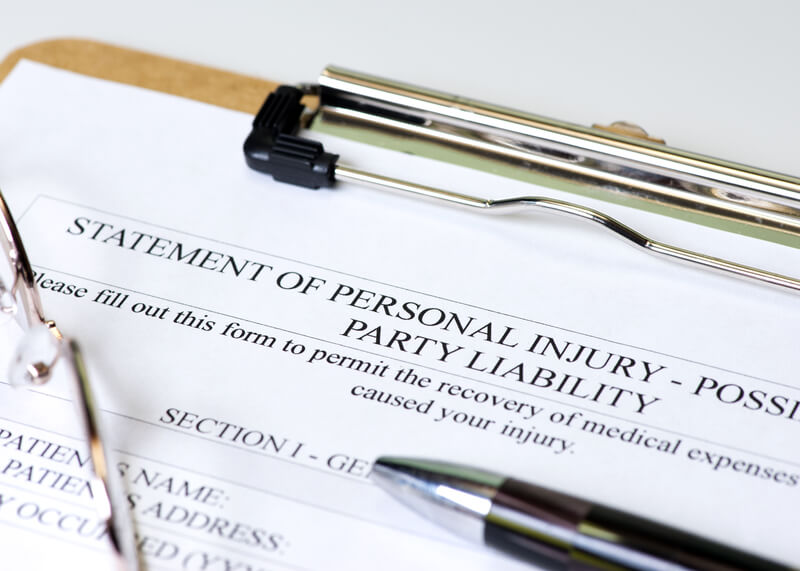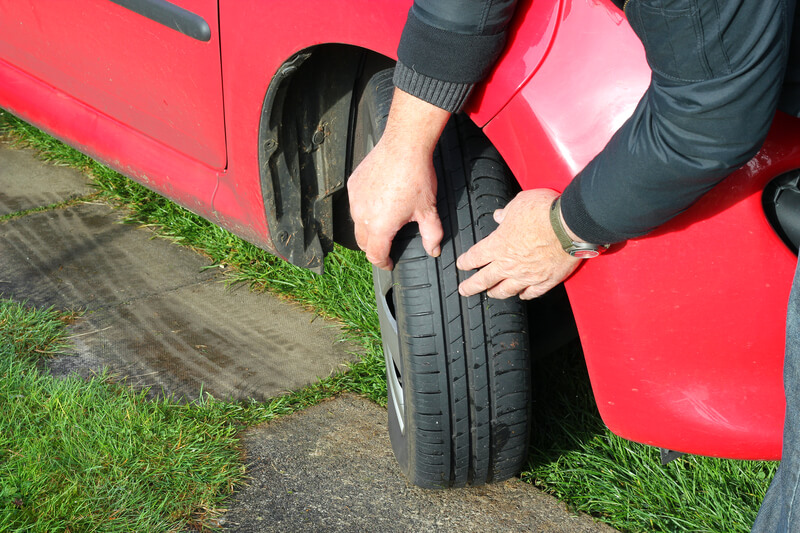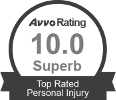After a car accident, expenses can pile up quickly. Medical bills, lost income, rental fees, car repair costs or even modifications to the home can become financially overwhelming. After an injury, people might also need help with childcare or be unable to manage housework and personal care without assistance. For many, mental healthcare becomes more important than ever, helping to process the trauma of the accident or feelings about the future.
It’s natural that during this time of intense physical and emotional recovery—with expenses at every turn—folks often wonder when the financial element of a personal injury case can be resolved. Unfortunately, it isn’t always easy to forecast how long personal injury claims will take to wrap up. While some cases, especially those with more minor injuries and clearly established fault, can resolve in about 6 months, others can stretch on for a year or two depending on the case and the extent of your injuries, or even longer if the case goes to trial.
If you’ve been injured or a loved one has been hurt in an accident, it can be helpful to understand the likely timeline of a personal injury case. Approaching the personal injury claims process with reasonable expectations around pace, plus some patience, can help make it a less stressful experience. Skilled personal attorneys will also help set expectations, keep you informed of progress and keep the goal in mind: a fair settlement, not just a fast one.
What happens after an accident?
Personal injury claims are usually associated with car accidents, motorcycle accidents or semitruck wrecks. But “personal injury” is actually a larger umbrella of case types, including slip and fall accidents, medical malpractice, defective product injuries, premises liability claims, severe burns and dog bites, among other types of claims.
Accidents that take place on the job fall under the workers’ compensation—a separate system handled in a different manner. (Though in some cases, injured workers also have third-party personal injury suits.)
After a car crash, dog bite, slip and fall or other type of personal injury, the process begins with documentation to gather evidence. In a car crash for example, you would:
- Call 911, ensuring the police create an accident report.
- Exchange insurance information with the other driver.
- Document the accident scene if you’re able to do so safely, gathering witness contact information and taking photos.
Your most important step, however, after any type of personal injury, is getting immediate medical attention. Doing so is important for your own health and recovery and critical to your eventual personal injury case. To mount a successful personal injury claim, you need clear documentation of your injury, connecting the injury to the car accident. If you’re struck by a car while bicycling and refuse treatment, not visiting the doctor until symptoms worsen a week later, the insurer may argue you were hurt in a separate incident or exaggerated your claim.
Once you’ve received immediate medical treatment, follow up with any referrals and specialist appointments. Your personal injury case will be able to move forward faster once medical providers have a full understanding of your prognosis. You’ll also want to avoid oversharing details about your case. Until you consult with an attorney, avoid posting anything about the accident on social media and do not speak to the at-fault party or their insurer.
What to look for when hiring a personal injury attorney
Soon after your injury, your next step in the personal injury claims process is finding a personal injury attorney. While very minor injuries can sometimes be handled independently, soft tissue injuries, broken bones, concussions and burns typically create expenses that require legal representation to help in obtaining fair compensation.
Start by asking friends for recommendations, research online and set up a few free consultations to discuss your case. Ask the lawyers you meet with about their specialty and what types of cases they typically handle. Some attorneys will take on personal injury cases as a small part of a more diverse practice, but if you’ve been hurt, you’ll want an experienced personal injury attorney. You might also ask how long they’ve been in practice and whether they’ve handled cases similar to yours. This is especially important if you or your loved one has experienced a traumatic injury or you were involved in a complex case, like a truck crash.
Choosing your lawyer is a key step in the process. You’ll work closely together, so you want someone who will prioritize your attorney-client relationship by respecting your opinion, being honest and forthright about potential outcomes, and keeps you involved in the legal process.
The personal injury claims process
Once you’ve decided to work with a personal injury attorney, you’ll share your account of what happened with your lawyer and grant access to your medical records. The attorney will begin researching the case, reviewing police reports, security footage, dash cam footage and witness statements in order to get a clear understanding of what happened. Most cases will involve the at-fault party’s insurance company.
In simpler cases where medical treatment is clear cut, an insurance company might offer a settlement as soon as you begin working with a lawyer, knowing you’re serious about your outcome. Cases where the at-fault driver has minimum insurance coverage may also be settled quickly, if it’s clear the injury value will outstrip the value of the insurance plan.
While settlements can sometimes happen quickly after an accident, there are two main reasons why personal injury cases often become time-consuming at this stage of the process, especially when they’re complex:
- You haven’t reached maximum medical improvement: Before your attorney can calculate a fair settlement and begin negotiations, your doctors need to know what your treatment entails. If, for example, your doctor recommended surgery for a soft tissue injury but you’d already accepted a settlement, you’d be on the hook for the additional costs. For traumatic injuries, this can take some time.
- The insurance company won’t negotiate fairly: It’s unfortunately common for insurers to offer lowball settlements, delay responses, try to downplay the severity of your injuries or even deny their customer was at fault in the first place. A skilled personal injury attorney will understand these tactics and know how to counter them.
After you’ve reached maximum medical improvement, your attorney will usually make a demand based on what expenses you’ve incurred and what you’ll need going forward. An attorney and motivated insurer will sometimes reach a settlement during this stage—without the need for a lawsuit. However, if the insurer won’t agree on the settlement negotiation, ignores the demand or continues to offer an unfair settlement, the attorney will then file a lawsuit.
Personal injury lawsuits
Once your personal injury attorney has filed suit, he or she will begin the discovery phase—a more intensive version of the research that occurred early on, now in preparation for a possible trial.
The lawyer will take depositions (sometimes traveling out of state to do so) and gather relevant documentation, like maintenance logs in a semitruck crash or cell phone logs in a crash where distracted driving played a role. Personal injury attorneys also have a network of experts to consult with who can help reconstruct a car crash or forecast care needs.
As your attorney builds your case, the insurance company’s lawyers do the same. It’s important to be open with your lawyer from the start regarding anything that can complicate the suit, like a previous injury, drug or alcohol use or partial fault in the accident.
While the attorneys complete the discovery process and wait for a court calendar date, they’ll also still try to make a settlement offer, sometimes moving into mediation. Finally, the case will move to trial and jurors will be selected. If you’ve ever been called for jury duty yourself, you may recall being asked about your insurance provider—attorneys are looking to ensure no one on the jury is prejudiced toward or against an insurer. The case may still settle at this point, right after the jury is chosen, or it will go to personal injury trial.
Personal injury settlements
Waiting out the personal injury claims process can be frustrating when the other party won’t negotiate fairly. It helps to keep an open line of communication with your attorney, express expectations and stay patient.
If your attorney has extensive experience with personal injury cases, they’ll often be able to offer advice on meeting your medical expenses while waiting for your case resolution, including using your own health insurance, setting up payment plans with medical providers or pursuing pre-settlement funding.
To help keep the case moving, your most important job is to focus on your recovery and well-being. Get the medical attention you need as soon as possible, then follow up with specialists and other providers. You’ll stay proactive in your medical care, create medical documentation of your injury and take an active part in reaching maximum medical improvement.
Also, remember that a capable personal injury law attorney will handle most of the lawsuit process, relying on extensive experience and an understanding of the insurance company’s tactics. Throughout it all, you can expect your personal injury lawyer to keep you updated on key decisions and pursue resolution in line with your goals. This allows you to work on your physical and mental recovery while trusting your attorney will obtain a fair settlement.
Atlanta Personal Injury Attorneys
Personal injury cases can stretch from a few months to a couple of years or more, depending on the circumstances, the severity of the injuries and the willingness of the insurance company to negotiate. During that time, it’s important to have an advocate who you trust and who will commit to building a respectful, honest relationship with you. At Litner + Deganian law firm, we specialize in personal injury cases and know how to reach fair settlements for our clients. Contact us today for a free initial consultation if you or a loved one has been involved in an accident that was not your fault.












